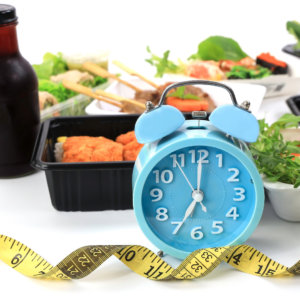
I cannot stress enough how weight loss and lifestyle change is a mental shift more than a physical one. That’s what it really comes down to.
You have to change the way you think before you can change the way you live. Without the mentality to back up your physical efforts, they’re likely to fall flat at some stage or another. That brings me to my next topic surrounding making important healthy lifestyle changes; how your thoughts and emotions affect your relationship with food.
Emotional eating has become a bit of a taboo word. The stigma attached makes it an uncomfortable topic to talk about but it’s an important issue to discuss when you’re on the road to turning your lifestyle around. It can be a big mental stumbling block that could sabotage your best efforts to lose weight and get healthy.
Emotional eating involves turning to food to address your emotional needs. Most people associate it with feelings of sadness and stress but that’s not the whole truth. Emotional eating also happens when you’re happy or even just bored. So, if it can happen in response to a variety of emotional states, what is it about eating that meets so many different emotional needs?
Eating Makes You Happy

Quite literally, eating makes you feel happy. It’s hard-wired into the human brain. It has to do with how we evolved to survive. To survive, we have to eat, and in times gone by food wasn’t as easy to come by or laden with energy as it is in our modern society of nutrition deficiency and caloric excess. So, what did the human body do to ensure we’d put in the hard work necessary to get the food we needed? It linked eating to the pleasure and reward centers in our brains.
The kinds of foods that really trigger this feeling of pleasure and reward are those high in fat, sugar, and salt. The chemicals released in response to not only having a full stomach but also eating those foods act as emotional and mental painkillers, kind of like drugs and alcohol have a similar effect. Because of this food-pleasure cycle, eating eases negative emotions, fills a void when you’re bored with the bonus of making you feel good, and even enhances your happiness when you’re already happy.
So, as you can see, emotional eating isn’t about being a glutton, not at all. It’s got to do with how our brains are designed and the overabundance and ease of access to tons of empty calories in our modern lifestyle but there is one lifestyle habit that exaggerates the problem.
Childhood Conditioning
Nobody likes to criticize their parents and no parent likes to be criticized. Hey, nobody is perfect and there is no ultimate handbook to getting parenting exactly right but there is a common parenting habit that mentally reinforces a bad relationship with food. If you’re thinking about how parents can have a tendency to use food as a reward, you’re right.
Think back to your childhood or just take a look at how many parents reward their children with food. Sweets, salty snacks, takeout; all those foods I just described as being particularly powerful at delivering that injection of pleasure is what parents use to reward kids with. Now that you understand how they interact with your brain, you also understand why they’re so effective and why no kid has ever been leveraged by the offer of a celery stick.
Society teaches us to treat food as a reward from a young age. This has the potential to build an unhealthy relationship with food, even if you’re not eating to placate uncomfortable emotions. It’s teaching individuals to cognitively associate food with a reward. When you strengthen that association with the stimulation of the brain and release of feel-good chemicals, you can understand why it can be tempting to reach for a cookie after a job well done instead of a non-food reward.
Changing Your Relationship With Food
To strengthen your mental attitude and fortitude for a sustainable long-term lifestyle change, you need to change your relationship with food. Doing that involves understanding
that relationship first. You now know why food can make you feel so good so it’s time to look at what your relationship with it is like.
Start by keeping a food diary and note down what you eat or drink, when, why you think you consumed it, and how you felt after you consumed it. Don’t suddenly start changing your eating habits because you’re aware of them. Treat food as you normally would to get an accurate picture of your relationship with food and your eating habits. After about a week, you should be able to see patterns emerging, such as eating because you feel stressed, bored, wanted to reward yourself, and when you’re most vulnerable to eating when you’re not actually hungry.
Understanding is the foundation of change. If you don’t understand why you’re doing something, how are you supposed to effectively change what you’re doing? Once you understand how you think and feel about food and your eating habits, it’s easier to find non-food alternatives to use as replacements. The trick is to find alternatives that truly make you feel good, whether that’s a hot bubble bath, scrolling through social media for a few minutes, watching a movie, or whatever else gives you a non-edible mood boost.






